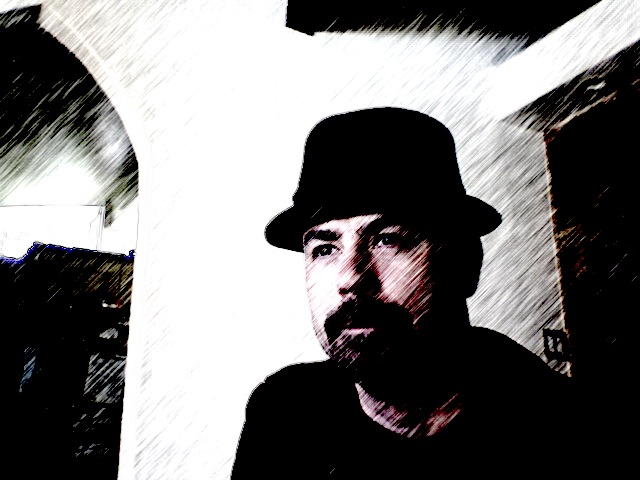Michael Bross is an award winning composer, sound designer and audio director who has worked on such popular video game franchises as Oddworld, Ratchet and Clank and WWE Wrestling, and he is currently working on free-to-play FPS MMO ‘Firefall‘. Through my own work on Oddworld HD remakes, I has the chance to chat with Michael, who was kind enough to answer a few questions for Designing Sound
Designing Sound: Can you tell us a little about how you got into game audio, and your audio career so far? Can you tell us a little about what you are currently working on?
Michael Bross: I was first hired by a small game company called Paragon Software as a composer in the early 1990’s. I ended up doing sound design for them, too, and learned that part of my work on the job. I’ve been working on a couple projects this year which includes an Insomniac project. That’s all composing work. I’m also doing a bit of audio directing a project for Rumble Entertainment called King’s Road. Plus, I continue to write music for Firefall.
DS: Is there an area of sound/audio development that you’re particularly drawn to?
MB: I go through phases. At times, I’m drawn more to sound design while others I’m drawn to music.
DS: As an experienced Audio Director, how do you approach pre-production for a project? (defining aesthetic, creating a palette, communicating vision)?
MB: I spend a lot of time understanding what the game is about. I also talk with the key people on the team and we bounce around ideas about what kind of audio experience that we’d like to create. From there, I begin to gather a lot of reference material from games, film, TV, music along with any other sound sources that are inspiring and related to what we’re doing. I, or my audio team, may do some sound or music prototyping at this stage. There are also a lot of technical aspects to plan for a game, too, so I’m laying groundwork on that.
DS: What are the main creative / technical challenges you faced in achieving your vision? Do you find the same challenges occurring on different projects?
MB: The main challenge is creating a production pipeline that allows creative people to focus on being creative and less on dealing with technical process.
DS: How do you approach communication with the other disciplines on the team? How do you keep audio in peoples minds?
MB: By understanding who they are and how they contribute to the development process. How to keep audio in people’s minds? It’s a proactive effort for sure, but understand that great teams know that audio is important.
DS: What do you consider to be the hardest part of creating audio for interactive media?
MB: Production crunches, especially at the end of projects. It’s the time period where there are too many things to do and not enough time. At the same time, it’s also an exciting time. Adrenaline runs high.
DS: You have worked on a wide variety of genres within games, from platformers Ratchet & Clank: All 4 One, to upcoming MMO first person shooter Firefall, through to sports / fighting with WWE Smackdown vs Raw 2011. Are there any unique challenges each of these genres poses?
Each has had its own unique challenges. With the Ratchet and Clank project, my focus was less on technical aspects and more on the creative, so really with that, my challenge was to pay respect to the soundtrack work on past titles while also trying to give it a refresh. With the WWE title, my role was to help them transition to new audio technology and pipeline, so it was more about making that happen and less about new content.
DS: You have previously been involved in creating music for films such as ‘Black Dahlia’ and ‘Ripper’. Is there a big difference in how you approach composing for games versus music for linear media?
MB: Actually, those projects were video game projects, too, but they were FMV-based games. The industry went through a period where it experimented with using live-action elements within a 3D world during the 90’s. We don’t really see that kind of game anymore.
DS: What do you feel is the most satisfying part of creating sound for games?
MB: Working with talented people and being in the trenches with them and aspiring to make something astounding.
DS: What are your preferred tools for working with? Do you have any software suites, plugins or apps that you use regularly?
MB: I use Pro Tools for sound design and Logic Pro for both music and sound design. I use an array of different plugins, but in general my favorite effects are those that manipulate pitch. Lately, I’ve been playing around with Izotope’s Iris plugin. It’s one of the more creative plugins I’ve come across lately. It’s like playing with crayons. I love it.
DS: On your last project, is there anything you would approach differently?
MB: On my last big project, I wished I would have had more time to go back and revise some of my mixes.
DS: What developments in game audio would you like to see in the future?
Closing the gap between content tools and implementation tools.
DS: Thank you for your time Michael

Great interview! It’s nice to hear someone with such an impressive track record as Michael speak about his love for quality sound and have the humility to mention the team aspect. Very cool! Also, couldn’t agree more with the need for development of a content/implementation tool that can really do it all.
Thanks guys!